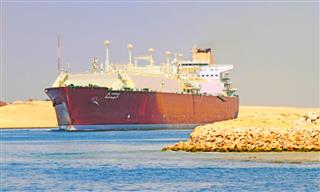Red Sea war insurance rises with more ships in firing line
- September 16, 2025
- Posted by: Web workers
- Category: Finance

(Reuters) — War risk insurance premiums for shipments through the Red Sea are rising after further attacks on merchant vessels by Yemen’s Houthi movement and the expectation that ships with a U.K. or U.S. connection will be targeted, insurance sources said Tuesday.
The Iran-aligned Houthis, who are well-equipped and trained, have launched multiple attacks on ships in the Red Sea since November. They will expand their targets to include U.S. ships, a Houthi official said Monday.
Even before the recent Houthi attacks, the London insurance market listed the southern Red Sea among its high-risk areas and ships need to notify their insurers when sailing through such areas and pay an additional premium, which until earlier this month was typically for a seven-day cover period.
Insurance industry sources said that war risk premiums had risen to around 1% of the value of a ship, from around 0.7% last week with various discounts applied by underwriters. They added that rates were expected to move higher.
This translates into hundreds of thousands of dollars of additional costs for a seven-day voyage.
The terms being offered for war risk quotes are now significantly shorter, with 24 hours being the norm,” said Munro Anderson, head of operations at marine war risk and insurance specialist Vessel Protect, which is part of Pen Underwriting.
“Rates are increasing which is reflective of the significant and opaque risk exposure within the Red Sea,” he told Reuters.
“Since the naval and air strikes in Yemen, it is now broadly considered that, in addition to Israeli-connected vessels, there is an elevated threat to vessels associated with the UK, U.S., including dependent flags, as well as those connected to Australia, the Netherlands, Bahrain and Canada,” he added referring to a U.S-led navy coalition trying to safeguard commercial shipping.
U.S.-based operator Eagle Bulk Shipping said Monday that one of its vessels was hit by an “unidentified projectile” while sailing 100 miles off the Gulf of Aden.
In recent days, commercial ships have halted voyages through the Red Sea, with more taking the longer voyage via the southern African Cape.
A combination of higher insurance rates and also rising fees for using the Suez Canal has meant that it is becoming cheaper to take the longer route, which could also mean less certainty over delivery times, shipping sources said.



